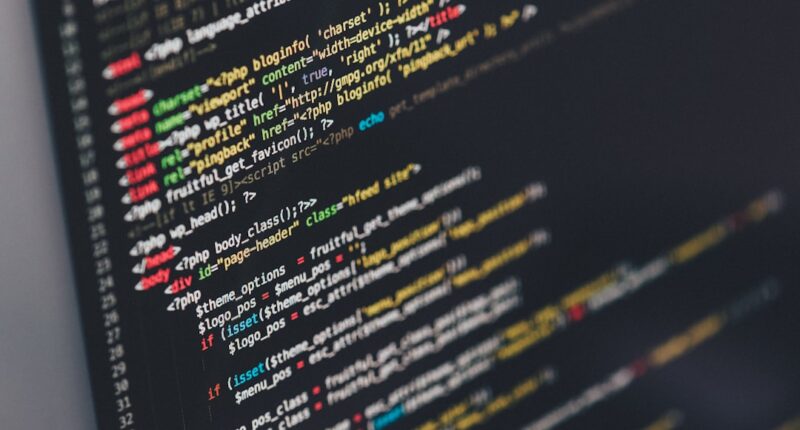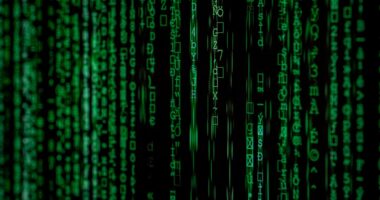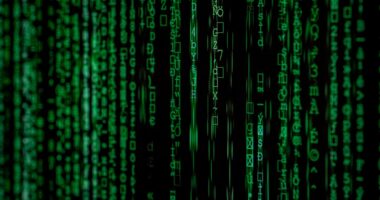NFTs, or non-fungible tokens, have taken the world by storm in recent years. These unique digital assets, built on blockchain technology, have revolutionized the way we think about ownership and value. NFTs can represent anything from digital art and collectibles to virtual real estate and in-game items. They are bought, sold, and traded on various online platforms, with each token being verifiably unique and indivisible.
Blockchain technology, on the other hand, is a decentralized and transparent ledger system that ensures the security and immutability of transactions. It is the underlying technology that powers cryptocurrencies like Bitcoin and Ethereum. NFTs are built on blockchain platforms like Ethereum, which allows for the creation and management of these unique digital assets.
NFT blockchain developers play a crucial role in this ecosystem. They are responsible for designing, developing, and implementing the smart contracts that power NFTs. Smart contracts are self-executing contracts with the terms of the agreement directly written into code. They enable the automatic transfer of ownership and ensure the authenticity and provenance of NFTs.
Key Takeaways
- NFT blockchain development is a growing field with increasing demand for skilled professionals.
- Pursuing a career as an NFT blockchain developer offers advantages such as high salaries and job security.
- Required skills for NFT blockchain developers include knowledge of blockchain technology, programming languages, and smart contracts.
- Educational and training requirements for NFT blockchain developers vary, but a degree in computer science or related field is often preferred.
- Job opportunities for NFT blockchain developers include roles such as blockchain engineer, smart contract developer, and NFT marketplace developer.
Advantages of Pursuing an NFT Blockchain Developer Career
There are several advantages to pursuing a career as an NFT blockchain developer. Firstly, there is a high demand for skilled professionals in this field. As NFTs continue to gain popularity and mainstream adoption, the need for developers who can build and maintain the underlying infrastructure will only increase. This demand translates into job security and opportunities for career growth.
Additionally, NFT blockchain developers can expect to earn lucrative salaries and benefits. Due to the specialized nature of their work and the scarcity of skilled professionals, companies are willing to offer competitive compensation packages to attract top talent. This includes not only high salaries but also benefits such as stock options, flexible work arrangements, and opportunities for professional development.
Furthermore, working as an NFT blockchain developer allows you to be at the forefront of cutting-edge technology. Blockchain technology is still relatively new and rapidly evolving, and being part of this industry means constantly learning and adapting to new developments. It offers the opportunity to work on innovative projects and collaborate with other talented individuals in the field.
Required Skills for NFT Blockchain Developers
To succeed as an NFT blockchain developer, there are several key skills that you need to possess. Firstly, proficiency in programming languages such as Solidity and JavaScript is essential. Solidity is the programming language used to write smart contracts on the Ethereum blockchain, while JavaScript is commonly used for front-end development. Having a strong foundation in these languages will allow you to effectively develop and deploy NFTs.
In addition to programming languages, a deep understanding of blockchain technology and smart contracts is crucial. You need to have a solid grasp of how blockchain works, including concepts such as decentralization, consensus mechanisms, and cryptographic algorithms. Understanding how smart contracts function and their role in NFTs is also essential.
Furthermore, knowledge of NFT standards such as ERC-721 and ERC-1155 is important. These standards define the rules and functionalities of NFTs on the Ethereum blockchain. Familiarity with these standards will enable you to create interoperable NFTs that can be easily traded and used across different platforms.
Educational and Training Requirements for NFT Blockchain Developers
While there are no strict educational requirements for becoming an NFT blockchain developer, having a bachelor’s degree in computer science or a related field can be advantageous. A formal education provides a strong foundation in programming concepts and computer science principles, which are essential for understanding blockchain technology.
In addition to a degree, obtaining certification in blockchain development can demonstrate your expertise and commitment to the field. There are several organizations that offer blockchain certifications, such as the Blockchain Training Alliance and the Blockchain Council. These certifications validate your knowledge and skills in blockchain development and can make you stand out to potential employers.
Participating in hackathons and coding competitions is another way to gain practical experience and showcase your abilities as an NFT blockchain developer. These events provide opportunities to work on real-world projects, collaborate with other developers, and receive feedback from industry experts. They also allow you to build a portfolio of projects that demonstrate your skills and creativity.
Job Opportunities for NFT Blockchain Developers
NFT blockchain developers have a wide range of job opportunities across various industries. One of the most prominent industries is gaming, where NFTs are used to create unique in-game items, virtual land, and even entire virtual worlds. Companies like Ubisoft, Enjin, and Decentraland are actively hiring NFT blockchain developers to build the infrastructure for their gaming ecosystems.
The art industry is another sector that has embraced NFTs. Artists can tokenize their digital artwork as NFTs, allowing them to sell and monetize their creations directly to collectors. Platforms like SuperRare, Rarible, and OpenSea are leading the way in this space and are constantly seeking talented developers to improve their platforms and enhance the user experience.
Finance is yet another industry that has recognized the potential of NFTs. NFTs can represent ownership of real-world assets such as real estate, stocks, and intellectual property rights. Companies like ConsenSys and Gemini are exploring the use of NFTs in decentralized finance (DeFi) applications, creating new opportunities for NFT blockchain developers.
NFT Job Titles and Descriptions

Within the field of NFT blockchain development, there are several job titles and descriptions that you may come across. These titles often overlap in terms of responsibilities and required skills but may vary depending on the company or organization.
One common job title is NFT developer. As an NFT developer, your primary responsibility is to design, develop, and deploy NFT contracts on the blockchain. This includes writing smart contract code, implementing NFT standards, and ensuring the security and functionality of the NFTs. You may also be involved in integrating NFTs into existing platforms or building new platforms from scratch.
Another job title you may encounter is smart contract developer. Smart contract developers specialize in writing and deploying smart contracts on the blockchain. While their focus may not be exclusively on NFTs, they play a crucial role in the development of NFT infrastructure. They are responsible for ensuring the accuracy and security of smart contracts, as well as optimizing their performance.
Blockchain engineer is another job title that is often associated with NFT blockchain development. Blockchain engineers have a broader scope of responsibilities and are involved in designing and implementing blockchain solutions. They work on the underlying infrastructure that supports NFTs, including consensus mechanisms, network protocols, and data storage. They also collaborate with other developers to integrate NFT functionality into existing systems.
The Future of NFTs and Blockchain Technology
The future of NFTs and blockchain technology is incredibly promising. As more industries recognize the potential of NFTs, we can expect to see increased adoption and integration into various sectors. The gaming industry, in particular, is poised for significant growth as more games incorporate NFTs as a way to enhance gameplay and provide players with true ownership of in-game assets.
Artists and creators will continue to explore the possibilities of NFTs as a means of monetizing their work and connecting directly with their audience. The ability to tokenize digital art and sell it directly to collectors has already disrupted the traditional art market, and this trend is likely to continue.
In the finance industry, NFTs have the potential to revolutionize how we think about ownership and investment. The ability to tokenize real-world assets opens up new opportunities for fractional ownership, liquidity, and transparency. We can expect to see more innovative use cases in decentralized finance (DeFi) and asset tokenization.
Overall, the future of NFTs and blockchain technology is still being defined. As the technology continues to evolve and mature, we can expect to see new applications and use cases emerge. The potential for disruption and innovation is vast, and NFT blockchain developers will play a crucial role in shaping this future.
How to Build a Strong NFT Blockchain Developer Portfolio
Building a strong portfolio is essential for showcasing your skills and experience as an NFT blockchain developer. Here are some tips to help you create a portfolio that stands out:
1. Showcase your projects: Include a variety of projects that demonstrate your ability to develop NFTs and smart contracts. Highlight any unique features or challenges you encountered during the development process.
2. Provide documentation: Include detailed documentation for each project, explaining the purpose, functionality, and technical aspects of the project. This demonstrates your ability to communicate complex concepts effectively.
3. Highlight your contributions: If you have collaborated on open-source projects or contributed to existing platforms, make sure to highlight these contributions in your portfolio. This shows that you are actively engaged in the community and have practical experience working on real-world projects.
4. Include testimonials: If you have received positive feedback or testimonials from clients or colleagues, include them in your portfolio. This adds credibility and demonstrates your ability to deliver high-quality work.
5. Keep it up to date: Regularly update your portfolio with new projects and experiences. This shows that you are continuously learning and improving your skills as an NFT blockchain developer.
Examples of successful portfolios can be found online, such as GitHub repositories or personal websites of established NFT blockchain developers. Take inspiration from these examples but make sure to personalize your portfolio to reflect your unique skills and experiences.
Tips for Navigating the Crypto and NFT Job Market
The crypto and NFT job market can be competitive, but with the right strategies, you can stand out from the crowd. Here are some tips to help you navigate the job market:
1. Stay up to date: Keep yourself informed about the latest developments in the crypto and NFT space. Follow industry news, join online communities, and participate in discussions. This demonstrates your passion and commitment to the field.
2. Network: Build connections with other professionals in the industry. Attend conferences, meetups, and online events to meet like-minded individuals and potential employers. Networking can lead to job opportunities and valuable mentorship.
3. Contribute to open-source projects: Contributing to open-source projects not only allows you to gain practical experience but also helps you build a reputation within the community. It shows that you are actively engaged and committed to the development of the technology.
4. Build a personal brand: Establishing a strong personal brand can help you stand out in a competitive job market. Create a professional online presence through platforms like LinkedIn, Twitter, or a personal website. Share your knowledge and insights through blog posts or articles to showcase your expertise.
5. Be adaptable: The crypto and NFT industry is constantly evolving, so it’s important to be adaptable and willing to learn new skills. Stay open-minded and be willing to take on new challenges and opportunities that come your way.
Resources for NFT Blockchain Developers and Job Seekers
There are several resources available for NFT blockchain developers and job seekers looking to enter the field:
1. Online courses: Platforms like Udemy, Coursera, and Solidity by Example offer online courses specifically tailored for blockchain development and NFTs. These courses cover topics such as smart contract development, NFT standards, and decentralized applications (dApps).
2. Forums and communities: Joining online forums and communities like Reddit’s r/ethereum and r/NFT can provide valuable insights and opportunities for networking. These communities are filled with experienced developers and industry professionals who can offer guidance and support.
3. Job boards: Websites like Crypto Jobs List, AngelList, and LinkedIn have dedicated sections for blockchain and NFT job listings. Regularly check these platforms for new job opportunities in the field.
4. Hackathons and coding competitions: Participating in hackathons and coding competitions not only allows you to gain practical experience but also provides opportunities to network with industry professionals. Websites like Devpost and Gitcoin list upcoming hackathons and coding competitions.
5. Online tutorials and documentation: The Ethereum Developer Documentation and OpenZeppelin provide comprehensive tutorials, guides, and documentation for NFT development and smart contract programming.
In addition to these resources, it’s important to stay curious and continuously seek out new learning opportunities. The crypto and NFT industry is still evolving, and staying ahead of the curve will give you a competitive edge in the job market.
In conclusion, pursuing a career as an NFT blockchain developer offers numerous advantages, including high demand, lucrative salaries, and the opportunity to work with cutting-edge technology. To succeed in this field, you need to possess skills such as proficiency in programming languages, understanding of blockchain technology, and knowledge of NFT standards. Building a strong portfolio, networking, and staying up to date with industry trends are essential for navigating the job market. With the right skills, experience, and mindset, you can thrive as an NFT blockchain developer in this exciting and rapidly growing industry.
If you’re interested in becoming an NFT blockchain developer, you’ll definitely want to check out NFT Jobs. This platform is dedicated to connecting talented individuals with job opportunities in the NFT space. One article that caught my attention is “Hello World: A Beginner’s Guide to NFT Development.” It provides a comprehensive overview of the basics of NFT development, making it a great resource for those just starting out on their journey. You can read the article here.
FAQs
What is an NFT Blockchain Developer?
An NFT Blockchain Developer is a professional who specializes in creating and developing Non-Fungible Tokens (NFTs) on the blockchain.
What are Non-Fungible Tokens (NFTs)?
Non-Fungible Tokens (NFTs) are unique digital assets that are stored on a blockchain. They are used to represent ownership of digital assets such as art, music, videos, and other forms of creative content.
What skills are required to become an NFT Blockchain Developer?
To become an NFT Blockchain Developer, you need to have a strong understanding of blockchain technology, programming languages such as Solidity, and smart contract development. You also need to have experience in developing decentralized applications (dApps) and a good understanding of cryptography.
What are the benefits of becoming an NFT Blockchain Developer?
Becoming an NFT Blockchain Developer can be a lucrative career choice as the demand for blockchain developers is increasing rapidly. Additionally, NFTs are becoming more popular, and there is a growing need for developers who can create and manage them.
What are the steps to becoming an NFT Blockchain Developer?
To become an NFT Blockchain Developer, you need to start by learning the basics of blockchain technology and programming languages such as Solidity. You can then gain experience by working on blockchain projects and developing decentralized applications (dApps). You can also attend blockchain conferences and workshops to network with other developers and learn about the latest trends in the industry.
What are some resources for learning about NFT Blockchain Development?
There are many resources available for learning about NFT Blockchain Development, including online courses, tutorials, and forums. Some popular resources include Udemy, Coursera, and Solidity documentation. You can also join blockchain communities and attend conferences to learn from other developers and experts in the field.





